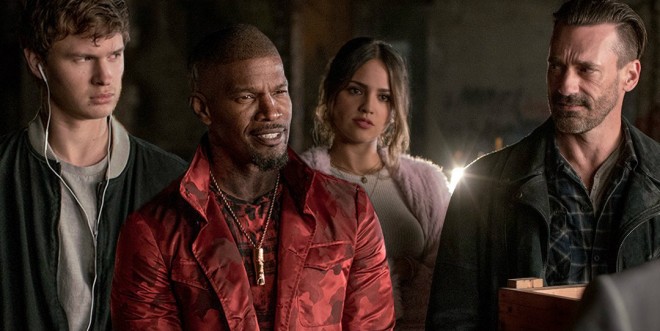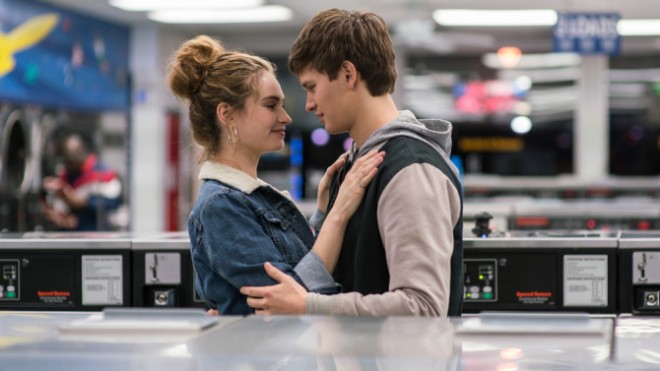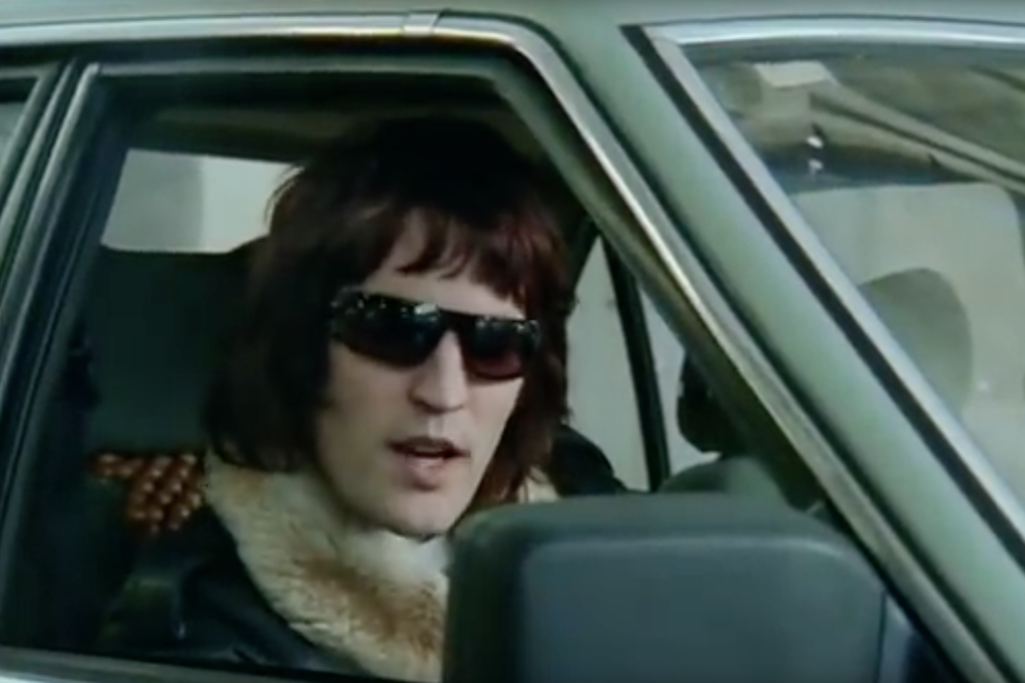An Apology To Edgar Wright From Someone Who Thought ‘Baby Driver’ Was Just Okay
I'm sorry.

I was very excited for Baby Driver. I devoured the trailers, and strong-armed friends and family into watching each updated version. I mainlined all Three Flavours and Scott Pilgrim vs The World, bestowed a placatory pat upon my Spaced box set, and convinced myself that I knew which bits of Ant-Man were left over from its original director.
I even got to the cinema early enough to pick the perfect seat, just close enough to the front to fill my entire field of vision with the kinetic, frenetic action I’d been waiting so long to see.
I’m so sorry, Edgar Wright. I wanted to love it so much, I really did.

I’m sorry.
No one sets out to make a bad film, and Baby Driver is far from being one. The level of craft on display is overwhelming at times, a table groaning with carefully curated excess. The songs are pitched so perfectly I half expected Anna Kendrick to show up and cut a remix; there’s more thought put into details like Baby’s mixtapes than other films have in their entire soundtracks.
This is an Edgar Wright joint, so the trademark quick cuts are there, but so are a richness of long, loving, languid takes — the camera as smooth and agile as the action. Ansel Elgort is the main beneficiary, his Baby spins and twists and darts with the grace and goofiness of an octopus on the hunt, but there are amazing performances throughout too. Jon Hamm starts off kindly and seedy, then revels in inhabiting places as dark as they are fun, while Jamie Foxx doubles down on loose-cannon tropes until he crackles with the electric unreliability of an exposed nerve. There are heists and getaways, bank robberies and true loves, delicious betrayals and surprising loyalties. And yet…
This is a film famously made over decades, each beat refined to a science; it’s just a pity that science wasn’t chemistry.
Guillermo del Toro called Baby Driver “a fable, complete with its very own Disney prince and princess”, and you can absolutely see Wright aiming for that aesthetic. It’s there in Baby and Debora’s (Lily James) meet-cute, the way the world on screen has a heart that pounds in time with whatever’s cued on the iPod.
This is a film famously made over decades, each beat refined to a science; it’s just a pity that science wasn’t chemistry. Seriously, the closest the supposedly star-struck lovers come to true romance are her similarities to his mother; there’s a hollowness to their connection that no song can fill. As hard as Elgort and James try, they aren’t even the best couple in the film. That accolade goes to Jon Hamm’s Buddy and Eiza Gonzalez’s Monica, a roiling stormfront of blood, lust and bloodlust in the form of a marriage.

It doesn’t help that Wright never fully commits to the fantasy, either. The precision of the first few heists unravels as the film goes on, exhilaration replaced with a more brooding energy as plans go awry and Baby starts dreaming of Debora in black and white, hair tossed by the wind, leaning back against her chariot.
There’s something funereal about that imagery, more valkyrie than valentine, as if the film is setting up a Bonnie and Clyde-style blowout of a finale that it references but never delivers. The other extreme would work, too; I’m sure Wright has a half-dozen songs to cue as the couple drive off into the sunset, happily ever after. What we get instead is a half-baked attempt to see dues paid and get the fantasy ending. It comes across as jarring tonal shifts, a film running on fumes as it drifts to a conclusion at least 20 minutes too late, with some fairly epic white privilege towards the end (no spoilers).
For a film so full of automotive iconography, it’s a conclusion that remains frustratingly in the middle of the road.
There is a moment that perfectly encapsulates Baby Driver’s almost-but-not-quite charm. It arrives later in the film, after Baby’s escaping the police on foot, when he hijacks a car and you’re ready for another chase — but the record skips, and Baby stays, unable to put pedal to the metal until he’s picked the perfect song. He’s flicking through radio stations in a compulsive, almost painful way, and it’s hard not to have your heart break as his tension slowly rises.
It’s a remarkable scene because it’s the first time Baby is truly vulnerable, the first time the trauma and tragedy of his backstory manifest in a way that isn’t a superpower. He’s a preternaturally talented driver with a gift for making (and choosing) music and an eidetic memory capable of recalling every last nuance of a plan; this could be his kryptonite, but it’s played for a laugh and the engine revs and we move on. Throughout the film, Baby’s compulsive quirks alternate between being cute and sweetly sad — then Wright hits on a defining flaw, a characteristic rooted in character that has the potential to upend all we’ve seen, only for any pathos to recede quickly in the rearview mirror.
Again, it’s Edgar Wright, so there are a million little details just waiting to be discovered and discussed; the cultural significance of the iPods, the stellar soundtrack, the nods and homages strewn throughout. For pretty much everyone in the entire universe this fulsome bounty is enough to overlook the flaws — the film is sitting at a very pretty 97 percent on Rotten Tomatoes — and I wish so hard I felt the same way.
I left every other Wright film desperate to watch it again, desperate to own a poster or a DVD or some way to make the magic I’d just witnessed tangible. This just felt bizarrely flat, by comparison. It’s telling that in a film called Baby Driver, so stuffed with four-wheeled getaways and pursuits, the very best chase takes place on foot. Maybe it’s selfish to have expected fireworks, to be disappointed by a film so starry-eyed that never leaves the bitumen, slowed down by potholes that are greater than the sum of its parts.
I really am sorry. But I’m going to see it again, of course. I owe Edgar, and myself, that much. This is a film and a director very concerned with loving nods to what has gone before, so maybe it’ll make a difference now that I know exactly where they’re both going.
–
Baby Driver is in cinemas now.
–
Hari Raj has worked as a journalist and editor in Malaysia, China, and Australia. He tweets about pop-culture ephemera at @jarirah.
